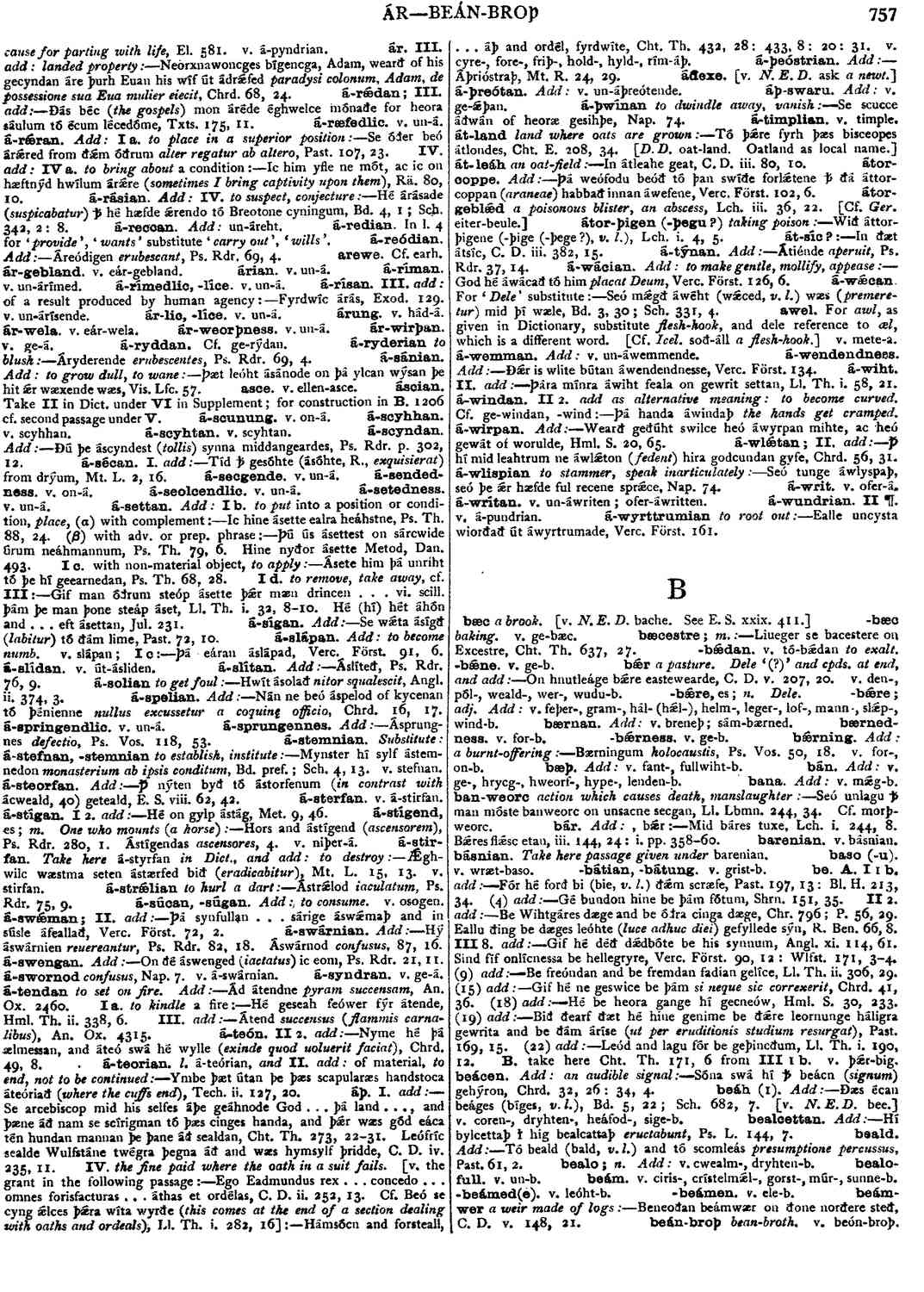be
-
For hé forð bi (bie,
v.l.
) ðǽm scræfe,- Past. 197, 13: Bl. H. 213, 34.
-
Gé bundon hine be þam fótum,
- Shrn. 151, 35.
-
Be Wihtgáres dæge and be óðra cinga dæge,
- Chr. 7915 ; P. 56, 39.
-
Eallu ðing be dæges leóhte (
luce adhuc diei)
gefyllede sýn,- R. . Ben. 66, 8.
-
Gif hé déð dǽdbóte be his synnum,
- Angl. xi. 114, 61.
-
Sind fíf onlícnessa be hellegryre, Verc. Först. 90, 12 : Wlfst. 171, 3-4. [9) add :-- Be freóndan and be fremdan fadian gelíce, Ll. Th. ii. 306, 29. (15) add :-- Gif hé ne geswice be þám si neque sic correxerit, Chrd. 41, 36. (18) add :-- Hé be heora gange hí gecneów, Hml. S. 30, 233. [19) add :-- Bid ðearf ðæt hé hine genime be ðǽre leornunge háligra gewrita and be ðám áríse (at per eruditionis studium resurgat), Past. 169, 15. (22)
add
:-- Leód and lagu fór be geþincðum,- Ll. Th. i. 190, 12. B. take here Cht. Th. 171, 6 from
Bosworth, Joseph. “be.” In An Anglo-Saxon Dictionary Online, edited by Thomas Northcote Toller, Christ Sean, and Ondřej Tichy. Prague: Faculty of Arts, Charles University, 2014. https://bosworthtoller.com/61364.
Checked: 0